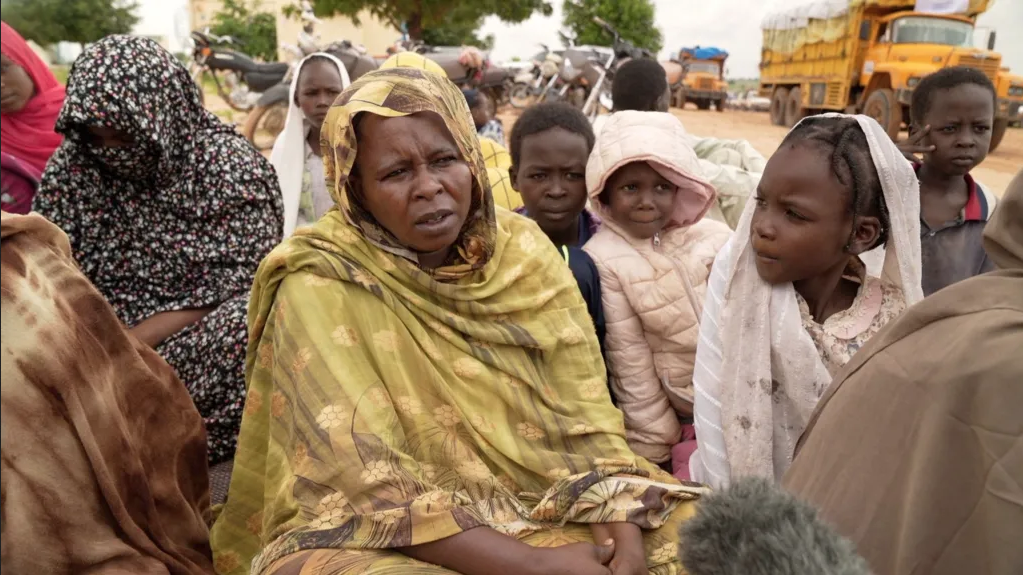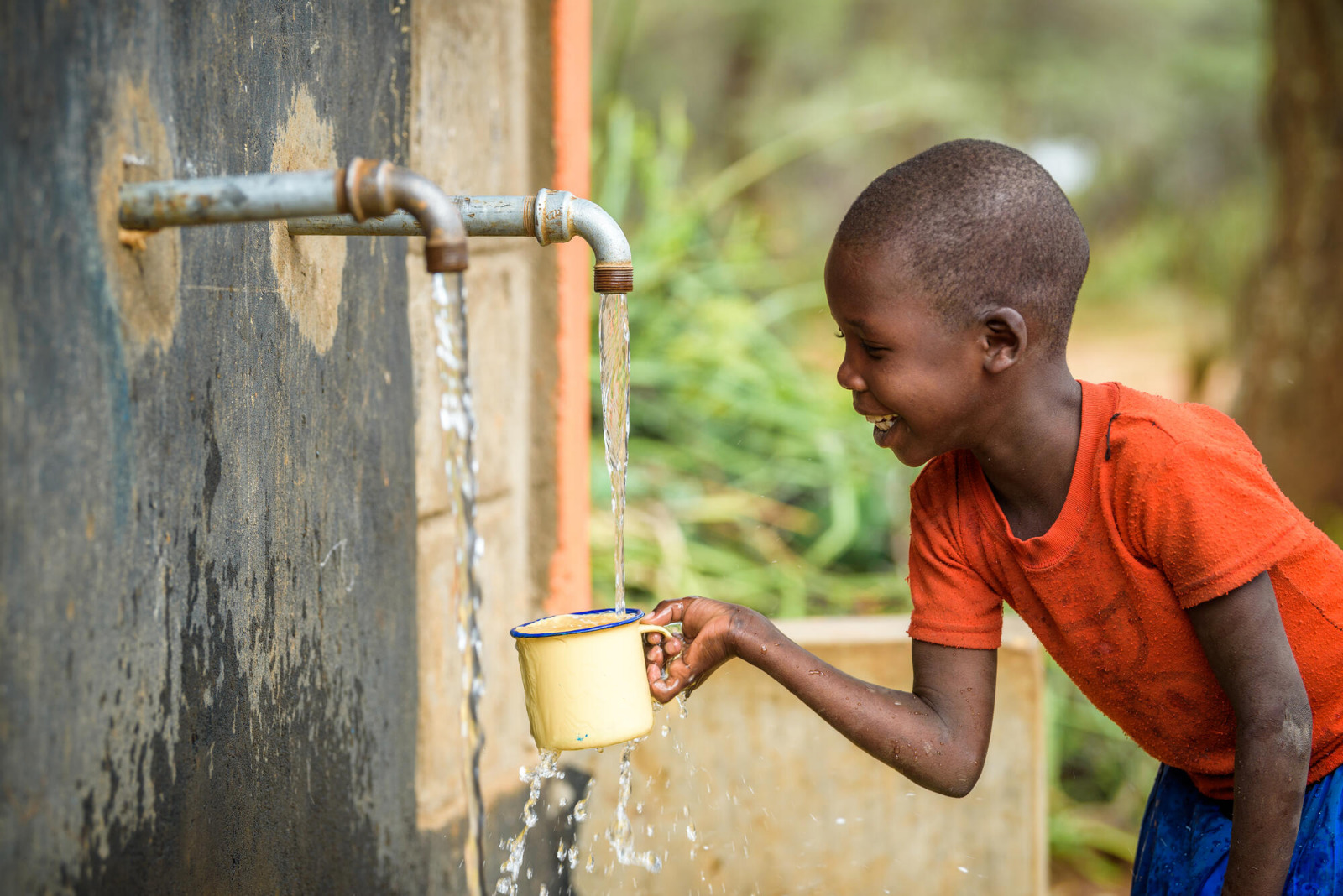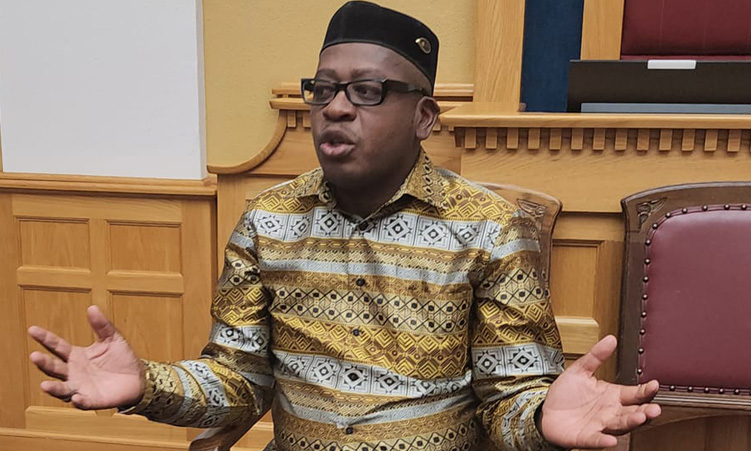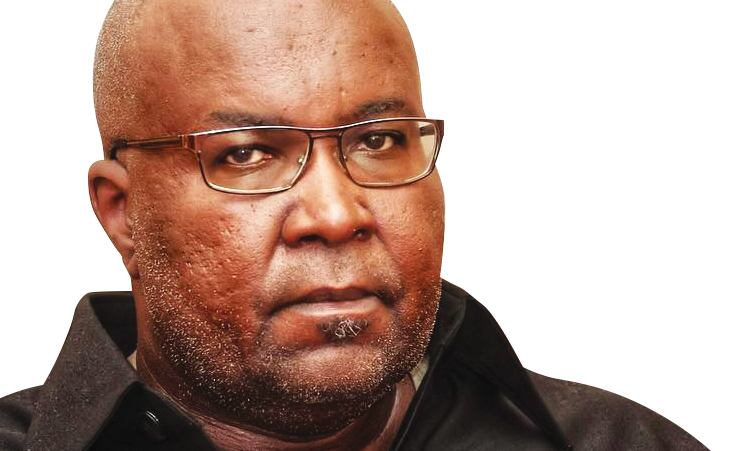On the side of a dirt road in Adré, a key crossing on the Sudan-Chad border, 38-year-old Buthaina sits on the ground, surrounded by other women. Each of them has their children by their side. None seems to have any belongings.
Buthaina and her six children fled el-Fasher, a besieged city in the Darfur region of Sudan, more than 480km (300 miles) away, when food and drink ran out.
“We left with nothing, we just ran for our lives,” Buthaina tells the BBC. “We didn’t want to leave – my children were top of their class at school and we had a good life at home.”
Sudan’s civil war began in April last year when the army (SAF) and the their former paramilitary allies, the Rapid Support Forces (RSF), began a vicious struggle for power, in part over proposals to move towards civilian rule.
The war, which shows no signs of ending, has claimed thousands of lives, displaced millions of people and plunged parts of the country into famine.
And aid agencies warn Sudan could soon experience the worst famine of anywhere in the world unless significantly more help arrives.
The BBC saw the desperation of Sudanese people first-hand when we visited camps in Adré, on the country’s western border, and Port Sudan, which is the country’s main aid hub, 1,600km away on the east coast.
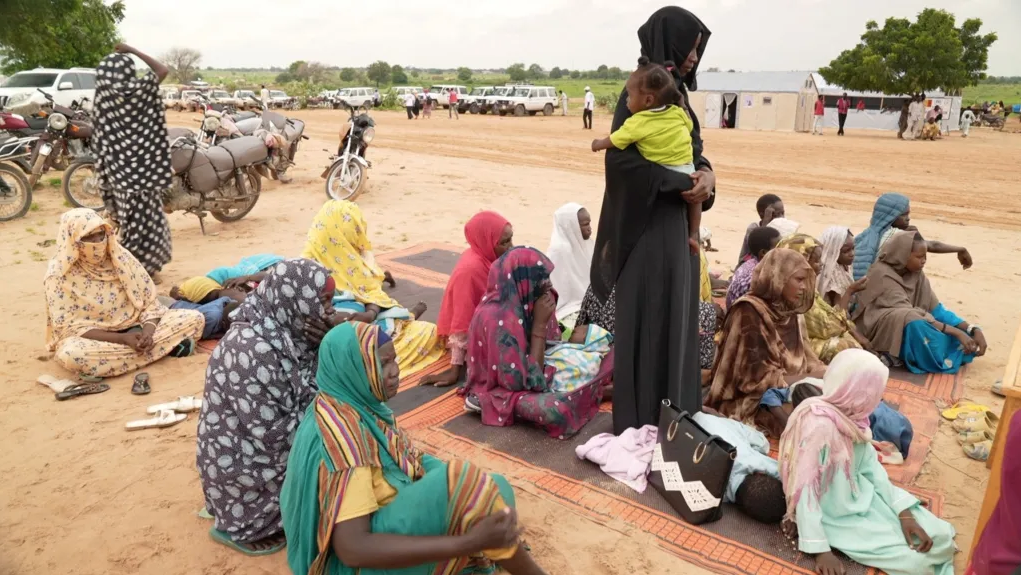
Adré has become a potent symbol of the political failure and humanitarian disaster produced by the current conflict.
Until last month, the crossing had been closed since January with only a few aid lorries making it into the country.
It has since reopened but aid agencies fear the deliveries now getting in could be too little, too late.
Every day, dozens of Sudanese refugees cross the border into Chad – many of them women carrying their hungry and thirsty children on their backs.
The moment they arrive, they rush to a water tank set up by the World Food Programme (WFP), one of many UN agencies that have been trying to raise the alarm over the scale of the conflict’s humanitarian impact.
After reaching Adré, we make our way to a makeshift camp near the border that has been assembled by refugees, with bits of wood, cloth and plastic.
Rain begins to fall.
As we leave, it turns torrential and I ask whether the precarious shelters survive the downpours. “They don’t,” says our guide Ying Hu, associate reporting officer from the UNHCR, another UN agency – for refugees.
“With rainfall comes a whole set of diseases,” she adds, “and the worst part is it also means at times it can take days before we can return here by car, because of the flooding, and that means aid can’t reach here either.”
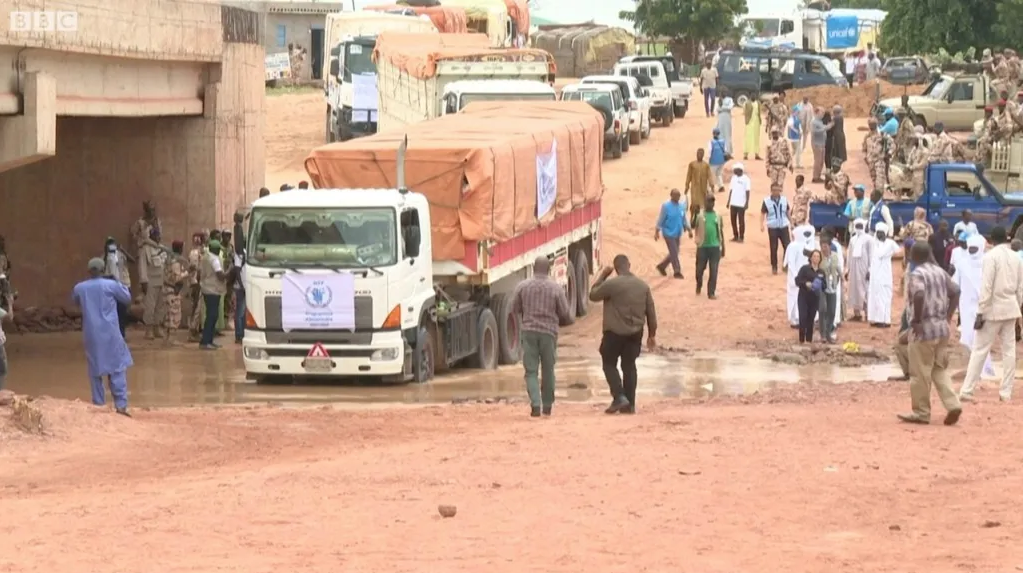
Famine has been declared in one area – in Zamzam camp in Darfur – but this is because it is one of the few places in war-torn Sudan the UN has reliable information on.
The WFP says it delivered more than 200,000 tonnes of food between April 2023 and July 2024 – far less than needed – but both sides are accused of blocking deliveries into areas under rival control.
The RSF and other militias have been accused of stealing and damaging deliveries, while the SAF has been accused of blocking deliveries into areas under RSF control, including most of Darfur.
The BBC approached the RSF and the SAF about the accusations but has not had a response. Both factions have previously denied impeding the delivery of humanitarian relief.
A single convoy of aid trucks can wait six weeks or more in Port Sudan before being cleared by the SAF for onward travel.
On 15 August, the SAF agreed to allow aid agencies to resume shipments via Adré, which should provide much-needed help to the population in Darfur.
In May, Human Rights Watch said ethnic cleansing and crimes against humanity have been committed against ethnic Massalit and non-Arab communities in part of Darfur by the RSF and its Arab allies. The RSF rejects this and says it is not involved in what it calls a “tribal conflict” in the region.
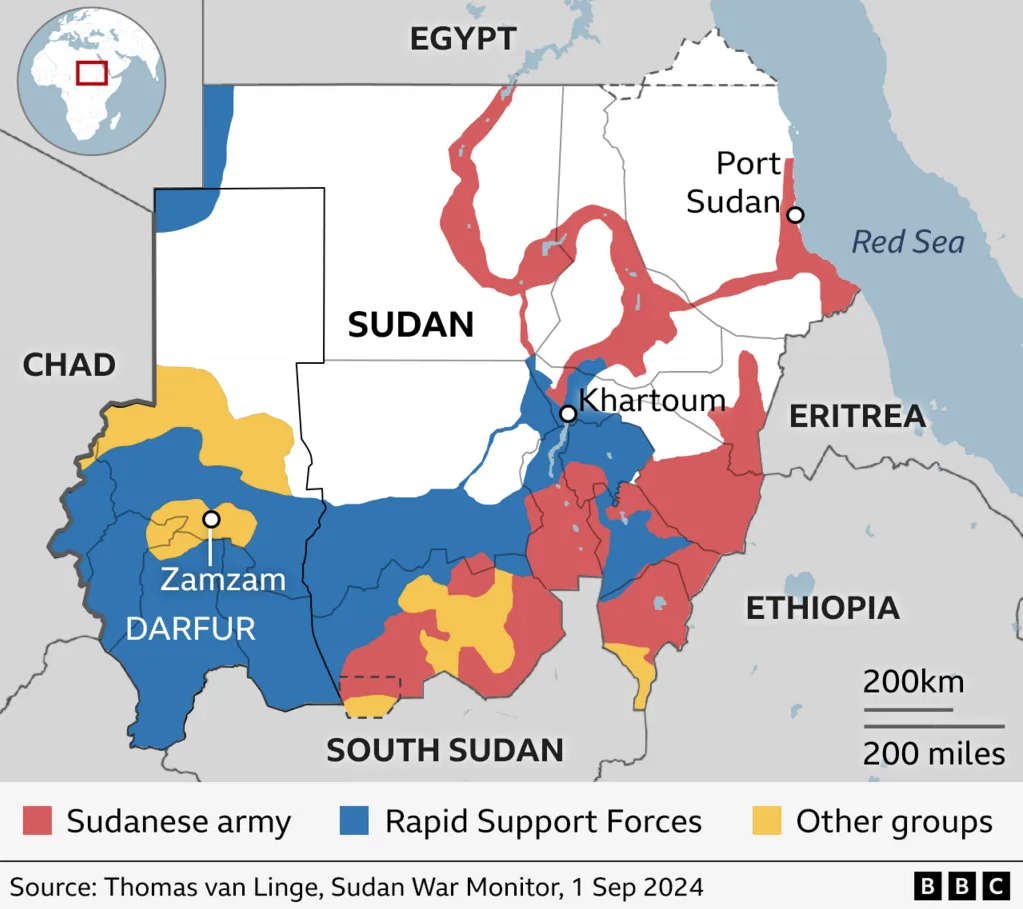
During our tour of Port Sudan we visit a camp for people who have been displaced within Sudan.
Walking from tent to tent, we hear one story after another of loss and horror.
In one, a group of women sit in a circle, some holding their babies tightly. All of them share stories of abuse, rape and torture in RSF prisons.
One of the women, who the BBC is not naming, says she was captured with her two-year-old son as she was fleeing Omdurman, near the capital, Khartoum.
“Every day they would take my son to a room down the hallway, and I would hear him cry as they raped me,” she told me.
“It happened so frequently that I would try to focus on his cry as they did it.”
Also at the camp I meet Safaa, a mother of six who fled Omdurman too.
Asked where her husband is, she says he stayed behind because the RSF targets any man who attempts to escape.
“Every day my children ask me, ‘Where is Baba? When will he come?’ But I have not heard from him since January, when we left, and I don’t know if he is still alive,” she says.
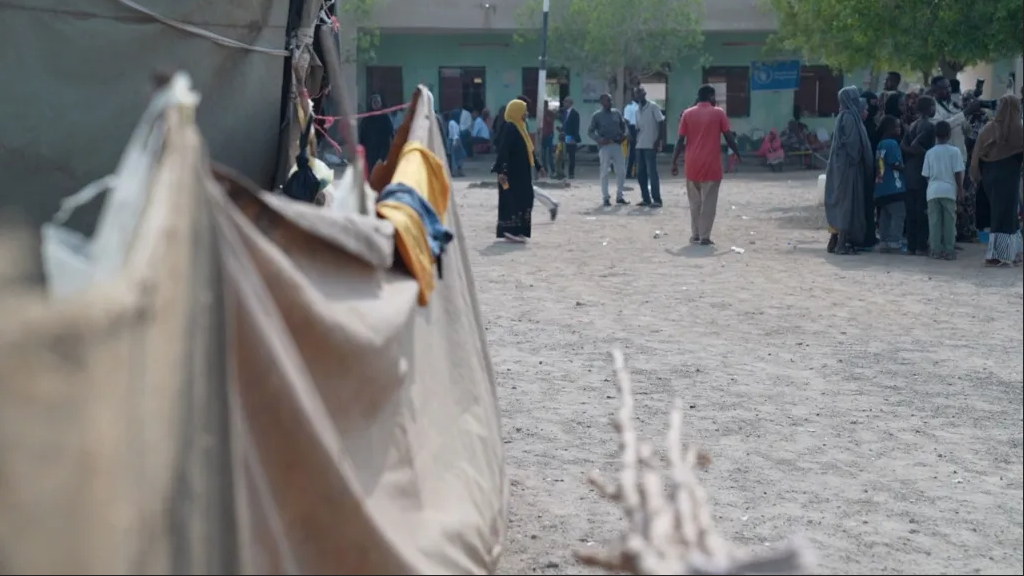
Asked about what future she envisages for her and her children, she says: “What future? Our future is over – there is nothing left. My children are traumatised.
“Every day, my 10-year-old son cries wanting to go home. We went from living in a house, going to school and now we live in a tent.”
The BBC approached the RSF for comment about rapes and other attacks but has not had a response. It has previously said reports that its fighters were responsible for widespread abuses were false but where a small number of isolated incidents had occurred their troops had been held accountable.
An employee for Unicef – the UN children’s agency – showing us around the camp says those who have arrived here are the “lucky ones”.
“They managed to escape the fighting and come here… they have shelter and aid,” he says.
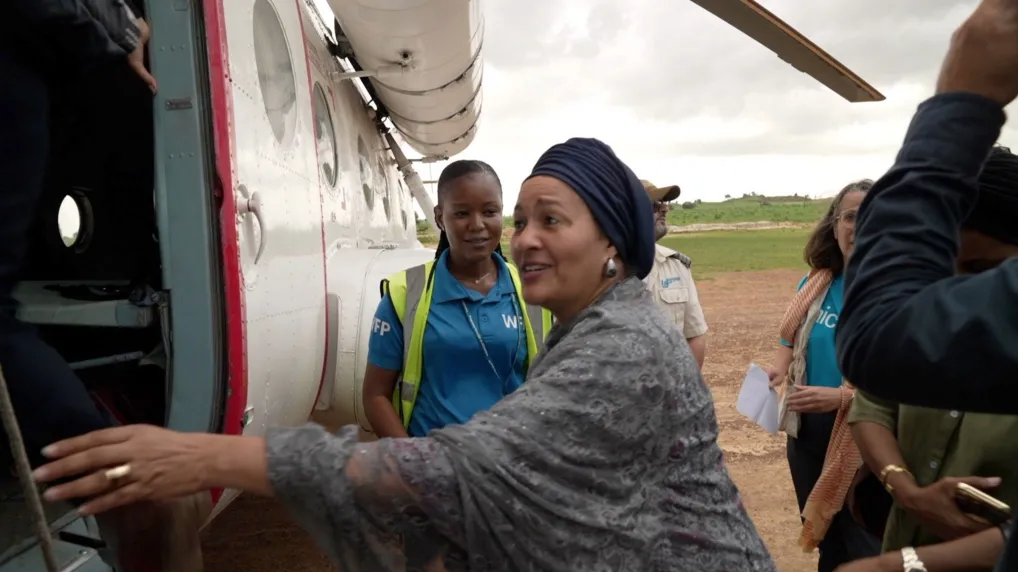
The BBC was visiting Adré and Port Sudan with UN Deputy Secretary General Amina Mohamed and her team of executives, who visited government officials and Sudan’s de-facto president, Abdel Fattah al-Burhan, to urge them to keep the Adré crossing open.
Her aim is to put Sudan back on the agenda for the international community at a time when the world’s attention is focused on conflicts in Ukraine and Gaza.
“There is fatigue because there are so many different crises around the world, but that’s just not good enough,” she says.
“You come here and you meet these mothers and their children and you realise they aren’t just numbers.
“If the international community doesn’t step up, people will die.”
Stay informed with The Namibian – your source for credible journalism. Get in-depth reporting and opinions for
only N$85 a month. Invest in journalism, invest in democracy –
Subscribe Now!




